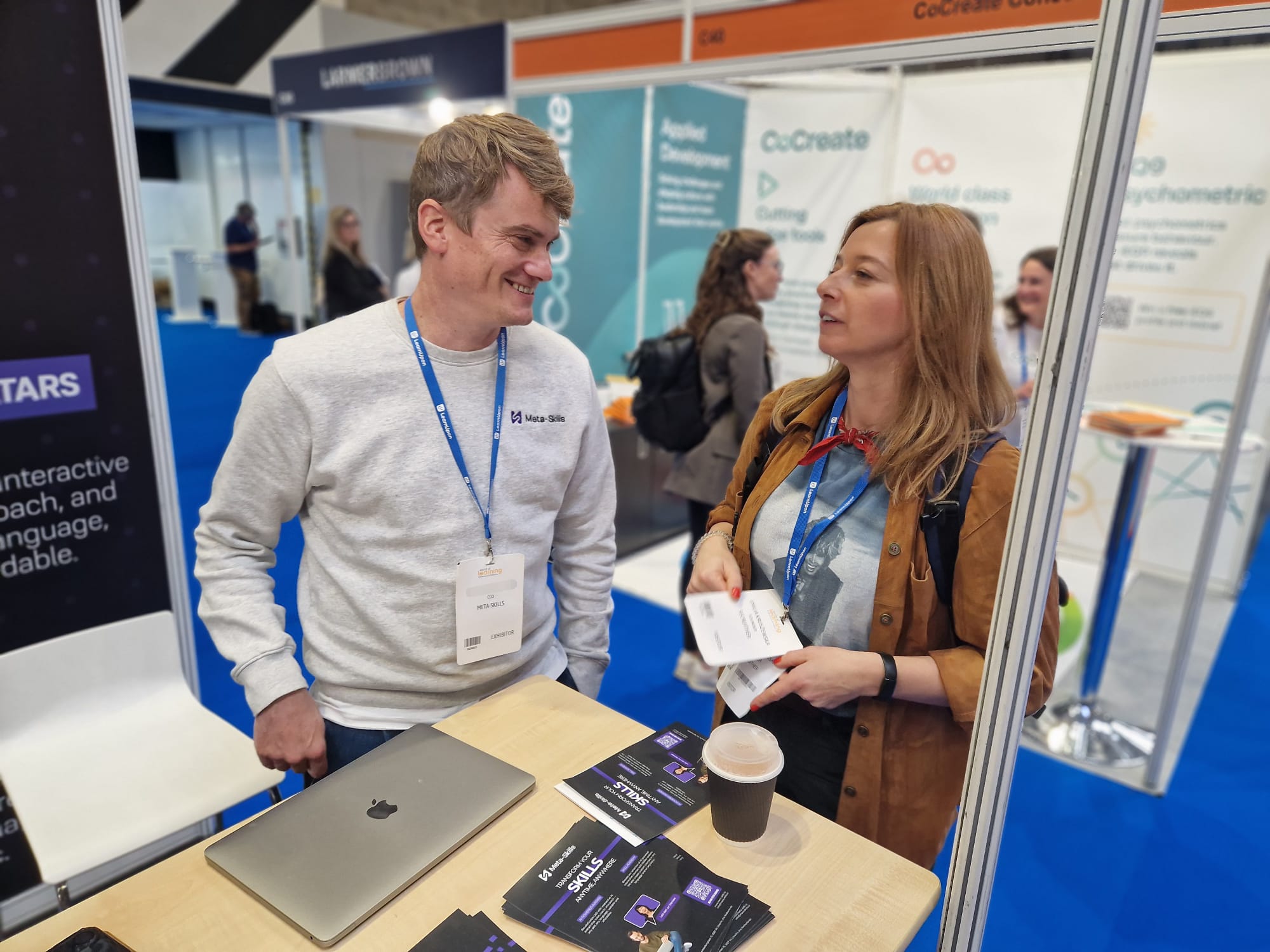
Over the past few months, I’ve been to quite a few events across the EdTech and education space, organised by BESA, BETT, DOHE, World of Learning or MoodleMoot, to name a few. Each one has given me a real sense of where the sector is right now.
And honestly, it’s a mixed picture. There’s so much innovation happening, especially with AI, but at the same time, there’s also a lot of change. Universities are restructuring, budgets are tight, and quite a few people across the sector have been made redundant. It’s a tough moment, and that’s exactly why it’s never been more important for EdTech companies to have the right people in place, especially in sales.
Having been a top-performing salesperson in EdTech myself, and now spending my days helping companies hire Account Executives, Business Development Managers or Sales Leaders, I can tell you one thing for sure: the difference between a company that grows and one that just gets by often comes down to the people driving the sales engine.
So, what makes a top-performing EdTech salesperson stand out? Here are five things I always look for.
Selling into education is not easy. Budgets shift, priorities change, and sales cycles can take months, sometimes years. The best salespeople understand that. They stay positive, creative, and persistent, they don’t chase quick wins, they build long-term success.
You can spot them right away, they just get the space. They understand how schools, universities, and ministries actually work. They can translate tech talk into real learning outcomes. And that’s what wins trust and renewals.
This one’s huge. Great salespeople know that education sector (HE, FE, K12) is a small world. They don’t just make connections, they nurture them. They’ve already built relationships with decision-makers and influencers, which helps move deals along faster and more smoothly.
The top 20% of your sales team often bring in 80% of your results, the classic 80/20 principle. But the very best reps don’t just focus on their own targets. They lift others up, share what works, and help shape strategy. They’re team players who make everyone around them better.
In EdTech, trust is everything. The best salespeople know that. They don’t overpromise, they listen, they educate, and they build real partnerships. They know that the work they do today sets them up for long-term success tomorrow.
With so much change happening across education, knowing who your true top performers are is essential. These are the people who will bring in most of your revenue, maintain client trust, and set the tone for your whole company.
And when the market feels uncertain, doubling down on great people isn’t a risk, it’s the smartest move you can make.
After spending years in EdTech sales and now working closely with the people driving growth in the sector, I can honestly say that the right hire can completely change the direction of a business.
The EdTech companies that will keep growing are the ones that back their people — those with resilience, great networks, and genuine relationships.
Because when everything around you is shifting, the best thing you can do is build a team that’s strong enough to keep moving forward.
Would you like me to write a LinkedIn-friendly version (around 250 words) of this next? It would work perfectly as a post to promote the full blog on your site.
Salaries vary depending on company size, region, and product type, but here’s a general guide for the UK and Europe:
Top performers in enterprise and SaaS deals often earn double their base salary when they hit target.
Unlike other SaaS sectors, education sales involve multiple stakeholders e.g. teachers, department heads, IT leads, procurement teams, and senior leadership.
Budgets are often set annually, pilots can run over academic terms, and approvals require data, testimonials, and long-term trust.
That means the sales cycle can stretch 6 to 24 months, depending on the institution or region. The best salespeople understand this pace and build relationships that compound over time.
In a shifting market, hiring impulsively can cost more than waiting for the right fit.
Hiring slow means:
Firing fast means:
A healthy sales culture depends on high trust, high output, and clarity — and that only happens when you keep your bar high.
AI is transforming how salespeople work — especially in data analysis, prospecting, and personalisation. The best teams are already:
Upskilling in AI doesn’t mean replacing people — it means freeing up great salespeople to do what they do best: connect, listen, and close.
Look for candidates who:
Top performers don’t just sell; they build momentum and elevate everyone around them.
The goal isn’t to rush the process but to make it smoother and smarter for decision-makers.
If your team is ready to scale and you’re looking to hire top-performing sales talent in EdTech, get in touch with RecruitHer.
We’ll help you find the perfect rock star who can:
📩 Contact us at contact@recruither.co.uk to start building your dream team.
Explore how we can tailor a solution for your needs—whether it is filling a specific role or redesigning your talent strategy for long-term impact.